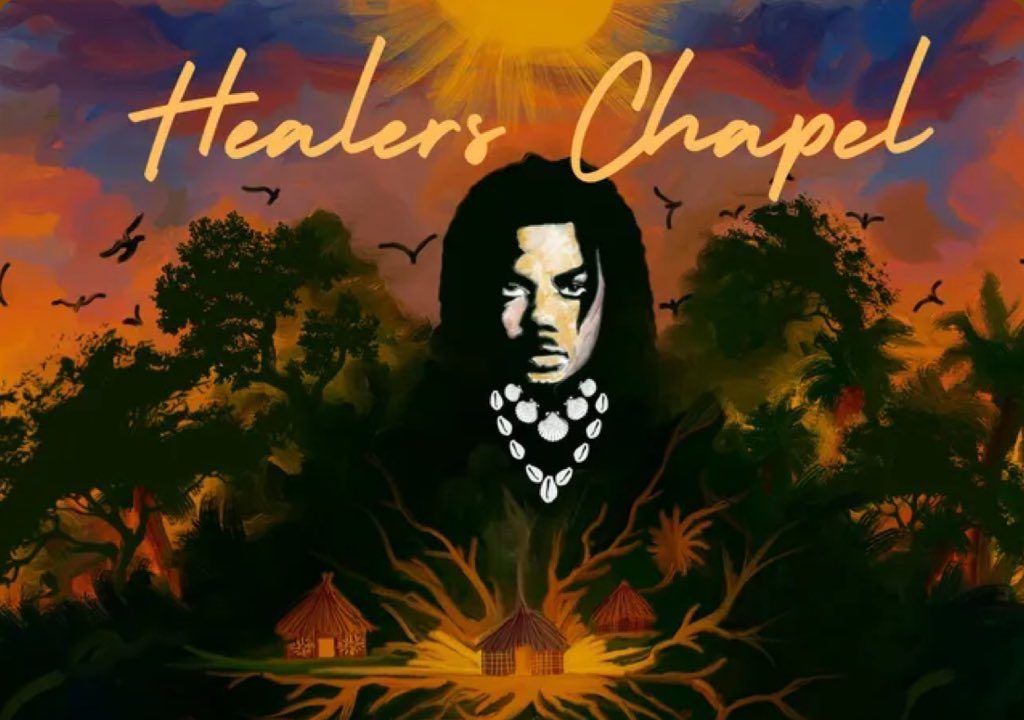With Healers Chapel, Wizard Chan invites listeners to experience a warmth of redemption and a sense of solace, even amid the turbulence and uncertainties of life.
By Abioye Damilare Samson
Afro-Pop’s global rise has not erased the truth that some of its most striking moments come from artistes who draw deeply from the roots of their immediate worlds. Whether it’s Rema and Shallipopi flipping Benin street slang into nationwide catchphrases, FirstKlaz experimenting with a Neo-Arewa sound in the north, or Adekunle Gold gesturing toward Fuji in his upcoming album, the pulse of home continues to shape what travels abroad. Wizard Chan, born Fuayefika Maxwell, stands within this current. His debut album, The Healer, is a purposeful extension of the journey to reimagine Ijaw language, elements, and spirituality within a modern fusion sound.
That sound, which he calls Afro-Teme, has always been the distinct marker that sets him apart. Since the meditative “Earth Song” put him on the map in 2022, his style—which recalled the depth of Reggae legend, Orits Wiliki, in the 80s and carried the communal energy of Gyration music—has since expanded far beyond what he displayed on that track.
The song became a career-defining moment, earning him two nominations at the 2023 Headies Awards—for Songwriter of the Year and Best Alternative Song—and ultimately winning the latter. It was proof that Wizard Chan’s music, stitched with gongs, bells, and other Ijaw music elements, alongside a fusion of Folk, Highlife, Hip-Hop, and Soul, could carve out a spiritual, almost ritualistic space in the mainstream, sustained by devoted listeners who now hail him as the “Big Masquerade” and “Native Doctor”.
Across projects like The Messenger and Time Traveller, both released in 2024, the Rastafarian-looking artiste has positioned himself as a conscious musician with a reflective approach. His new album, Healers Chapel, continues that trajectory by carrying his music into even more philosophical terrain, and offering a kind of songs to soothe, reflect, and restore.

As a conscious artiste, it’s fitting that he chases transcendence for himself and his music on the soulful intro track, “I Want to Live Forever”. “I want to live forever / My songs should live forever”, he quips passionately over soaring keyboard chords and a crowd vocal on the chorus.
The track “By The River” deepens this pursuit, drawing on the River Jordan as a biblical symbol of transition and purification, a motif of healing that aligns perfectly with the album’s title. The title track, “Healers Chapel”, features longtime collaborator, Boma Nime, a trio of women traditional healers, who infuse indigenous chants and prayers into the song’s chorus.
On the PDSTRN-assisted “Quick Report” and “Amen (God My Dealer)”, he shows his range on Drill. The former tells a raw story of police brutality and the chaos such systemic violence breeds, amplified by Lagos-based rapper PDSTRN’s gripping raps and fluid flow, while the latter situates God as his ultimate inspiration, integrating the familiar hymnal chorus, “Amen Amen Amen Amen Amen.”
The pre-released “Oliver” pushes his fusion instincts further: gyration percussion, dancehall basslines, and Highlife guitar lines intertwine. Yet it is the lyrics, which draw on Oliver Twist’s story of eternal longing for more, that ground its symbolism.

With “Oh My Home”, he reimagines a primary school rhyme into a nostalgic Highlife ballad, carried by warm guitar riffs and trumpet solos. On the Pumba Mix-produced “Flee Oh Sickness”, the intro stands as an emblem of his self-coined sub-genre Afro-Teme, while he assumes the role of healer, declaring, “Sickness flee from my body, I am speaking as a person of an almighty Jah”, and reflecting on his 2020 Covid-19 ordeal.
The Reggae-tinged “Promised Land” drifts toward visions of Nirvana, while “In My Defence”, “Yours Truly”, and “Sober” lay bare his vulnerabilities in moments of self-rumination. On “Heal”, featuring Joeboy, he resists the familiar trope of weed as a muse, instead singing about abstinence from substances he once turned to for comfort but never found healing in. The hymnal requiem “Dein Na Mu” closes the album. It’s a poignant dirge that pays homage to lost souls and laments the many vices that hindered his healing, set against a sombre bassline.
Throughout the 38-minute runtime of Healers Chapel, Wizard Chan never loses sight of his primary aim of creating music as a form of healing for the troubled soul while also channeling his lived experiences and inner battles as a compass for redemption. Healers Chapel is richly layered as it taps into a sense of mystique and higher consciousness, particularly in songs like “By The River” and “Healers Chapel” with Boma Nime, and is culturally remarkable in the way he infuses his native Ijaw language to convey emotion with profound intimacy and nuance.

Although he had already proven his artistry with two prior projects, this debut full-length heralds a new chapter for Wizard Chan as a representation of independence and confidence that he has no intention of bending his sound to fit the currents of popular taste or waves in the zeitgeist.
With Healers Chapel, Wizard invites listeners to experience a warmth of redemption and a sense of solace, even amid the turbulence and uncertainties of life. Of course, it’s not the kind of project you play to soundtrack revelry or party anthems, but ultimately, it is the kind you return to for grounding, reflection, and assurance that the good times are still within reach.
Lyricism – 1.8
Tracklisting – 1.4
Sound Engineering – 1.4
Vocalisation – 1.5
Listening Experience – 1.5
Rating – 7.6/10
Abioye Damilare Samson is a music journalist and culture writer focused on the African entertainment Industry. Reading new publications and listening to music are two of his favourite pastimes when he is not writing. Connect with him on Twitter and IG: @Dreyschronicle



